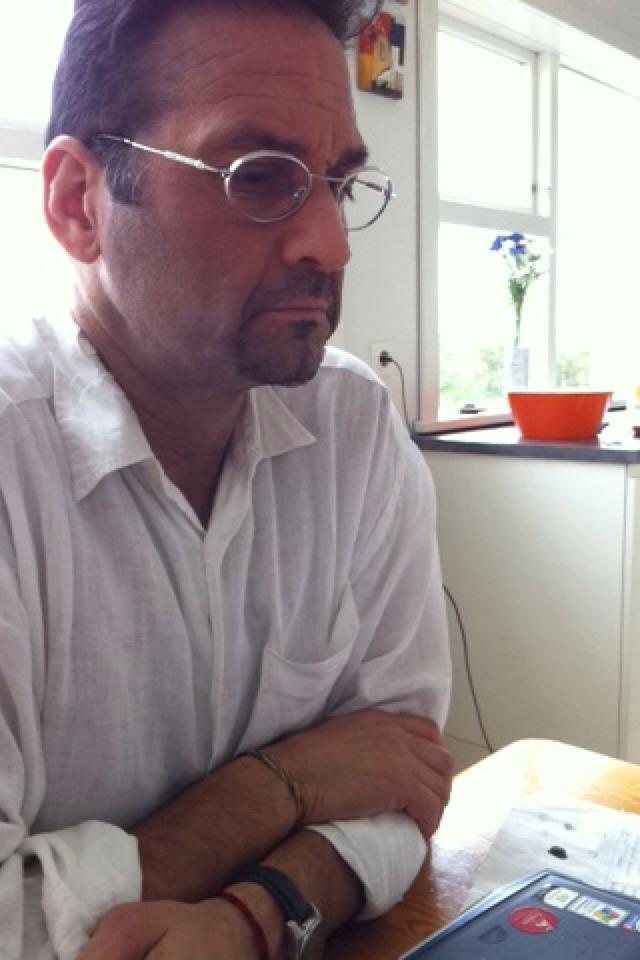Boors versus Buddhists
Actually, Mr. Hume, Buddhism has the forgiveness thing down pat
"Even the good person attains birth in the PureLand, how much more so the evil person"
The Tannisho
--Shinran (1173-1263)
Brit Hume's recent boorish proselytizing to the contrary, Buddhism offers Tiger Woods, and anyone else interested, an excellent form of redemptive salvation in the form of Pure Land Buddhism, probably the most widely practiced form of Buddhism in the world. While my own forays into the world of political writing generally focus on events where I now live (Iceland), or political and literary concerns I have some passions about, I rarely speak publicly about my faith. Maybe that's a Buddhist tendency to not preach or to put oneself out there too much. I don't know. But when I heard Brit Hume's recent silliness about Tiger Wood's need for a redemptive transformation, and his utterly ignorant claim that, as Buddhism supposedly does not offer such, Woods is better off converting to Christianity, I felt the need to explain.
While Zen, Soka Gakkai (an offshoot of Nichiren) and the various forms of Tibetan Buddhism are now fairly well-known in the West, most of the world's Buddhists adhere to one or another form of Pure Land Buddhism. PureLand takes its name from a set of sutras written at the earliest centuries of the Christian era detailing the compassionate, redemptive power of Amida Buddha and his Buddha field, or PureLand. Amida, a plural contraction of Amitabha (Infinite Light) and Amitayus (Infinite Life) began as Dharmakara, a being in the mythologized past whom, out of infinite compassion for innumerable beings suffering, pledges to be become a Buddha based upon a number of vows he then undertakes for eons. However, his determination and compassionate regard for all sentient beings is such that, he makes a qualifying statement at the end of each vow saying in effect, "If all beings do not also attain this, may I not achieve my aim". The story continues that he did achieve his vows (48 in some versions, a few more or less in others) and is now a Buddha of the Western Paradise, Sukhavati, roughly, "The Happy Land", now named Amida. His major qualities are of endless luminosity and endless vibrancy, described more commonly as light and life, metaphors for Wisdom and Compassion. There he works tirelessly for all beings for whom he provided several specific vows directed to them. These vows, in particular the 18th, known as the Original Vow, states that if a person says his name even ten times with complete entrusting, he should be born in the Pure Land upon death from where he or she will work for Enlightenment. Amida, having become a Buddha and fulfilled his vows, has now made salvation for all beings a given. While there are many Buddhas in Buddhism, starting with the historical Buddha, Shakyamuni, Amida Buddha is unique in that he is the embodiment of Buddhahood made completely available to all beings in all times and in all circumstances, offering complete and unconditional liberation through his compassionate activity.
Pure Land's various theological permutations need not concern us too much here, suffice it to say that in China and the rest of the Asian countries where Pure Land Buddhism exists, it does so as one part of the totality of Buddhism there, a devotional form whose practices are included even in the so-called Self-Power schools of Zen and are present in Tibetan Buddhism as the practice of Phowa. (Self-Power and Other-Power are two divisions of Buddhism dividing it into those schools which teach a soteriological end for those who practice on their own via their own wills, versus those which depend upon the Other Power of Amida). In Japan, however, Pure Land saw it's growth as a unique and separate school which teaches that the name of Amida (as in the formula, Namo Amida Butsu) is all that is necessary for salvation, for Amida's love and delivering power grasps the one whose faith, or "true entrusting," is complete and non-ego centered.
For Shinran, the founder of TruePureLand or Jodo Shinshu, even the act of entrusting is given us by the power of Amida's Original Vow. The moment we entrust is said to be the moment we "are grasped, never to be abandoned", and is the expression of the limitless compassion Amida has for all beings, no matter how evil they are. While Shinran's quote at the beginning may seen odd, he believed that the "good" among us are rarely without ego investment in their salvation, and thus their actions remained filled with calculated self-interest. The evil, on the other hand, when given to repenting for their actions, are less invested in the possibility of doing anything good, and are thus the true object of Amida's vows. Thus, it is the "sinner" who is more the subject of Amida's compassionate activity over the "saint".
PureLand Buddhism in Japan provided an egalitarian, lay-oriented form of Buddhism that was accessible to the masses for whom rigorous ascetic practices and innumerable moral prescriptions were prohibitively difficult. Farmers and merchants, outcastes (leather workers, for ex.) and other workers in questionable trades (such as prostitutes) took to heart the message that the Buddhist path was open to them as well and not only some remote monastic ideal few could live up to. Shinran himself was a monk for more than 20 years but realized even his own piousness was a camouflage for egoistic self-interest. So he abandoned the monastic ideal, married and raised a family and became a beloved figure whose teachings of faith in Amida spread throughout Japan.
(Note: You can view every article as one long page if you sign up as an Advocate Member, or higher).






